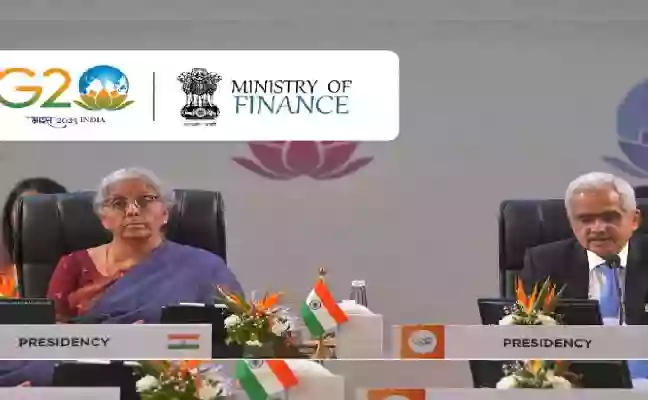.gif)
.gif)
During the G20 Finance Ministers and Central Bank Governors' third meeting in Gandhinagar, Gujarat, key global financial issues and reforms at multilateral development banks and the rising significance of Central Bank Digital Currencies were discussed
India's stance on funding MDBs garnered widespread support, while CBDCs were highlighted for their potential to transform cross-border transactions
RBI Governor Shaktikanta Das emphasized the transformative nature of CBDCs and their potential to revolutionize the global currency system

During the third meeting of G20 Finance Ministers and Central Bank Governors in Gandhinagar, Gujarat, major global financial issues were discussed.
It included reforms at multilateral development banks (MDBs) and the growing importance of Central Bank Digital Currencies (CBDCs), according to Finance Minister Nirmala Sitharaman and RBI Governor Shaktikanta Das.
The discussions were organized under five thematic heads, covering a wide range of topics such as the global economy, sustainable finance, international finance architecture, taxation, and financial inclusion. India's stance on funding multilateral development banks received widespread support from G20 member countries, garnering positive feedback for the Indian presidency.
During the meetings, the global economic outlook, risks, macroeconomic implications, food and energy security, and climate change-related issues were extensively deliberated upon. Additionally, strengthening multilateral banks to meet modern challenges was a key point of focus and garnered significant traction at both the deputies' and minister-level meetings.
Finance Minister Sitharaman highlighted the endorsement of a roadmap to implement recommendations from the independent review of MDBs and CAF, which is expected to result in increased funding for these banks.
Meanwhile, RBI Governor Shaktikanta Das emphasized the importance of Central Bank Digital Currencies (CBDCs) during the discussions. The central bank digital currency is seen as the future of digital payments and holds immense potential for facilitating cross-border transactions. Agencies such as the Bank of International Settlements were recognized for their work in this area, and the G20 acknowledged the significant possibilities that CBDCs offer.
Das further explained that CBDCs represent a fundamental shift in the global currency system and have the potential to revolutionize money across the world. He drew a parallel to the remarkable growth of the Unified Payments Interface (UPI) in India, which now handles nearly 30 crore transactions per day, showcasing how CBDCs might similarly expand in the future.